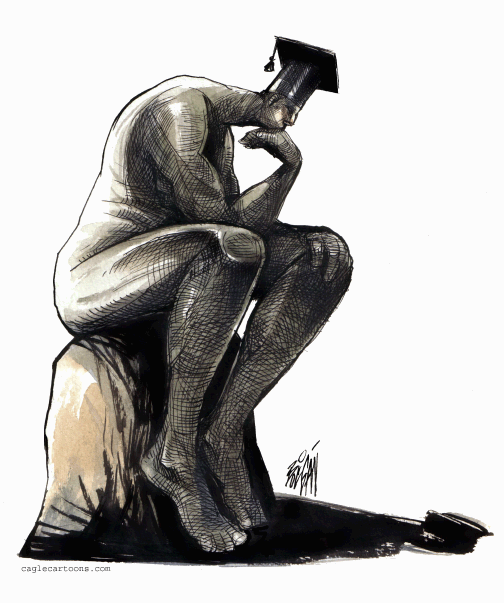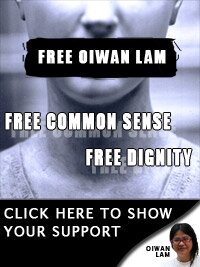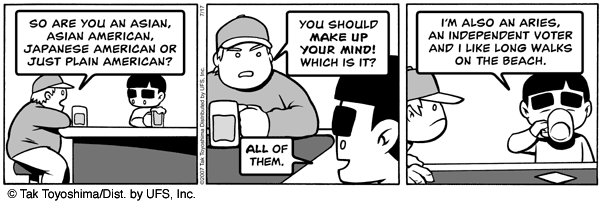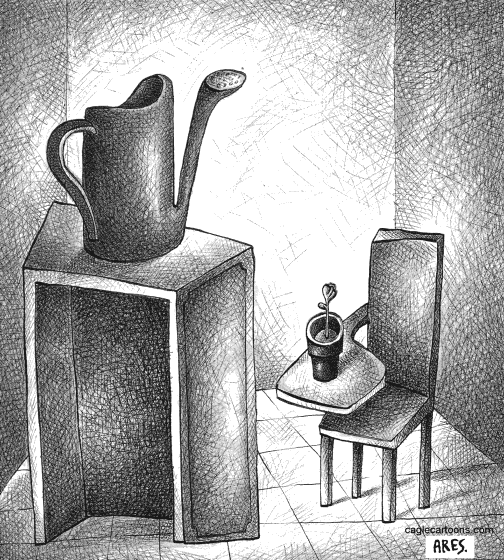Revisiting Yue-Yinglish 101
p>I am one of those people who actually enjoys tests, especially those that challenge my verbal or reasoning skills. In basic military training, sometime not long after the time of muskets and canon balls, we new recruits took a language aptitude test. It was basically an examination that determined whether or not we could make sense of an invented language. It asked us to extrapolate from one bit of seeming gobbledygook to the next and then build sentences based on recurring patterns of subjects, objects and verbs. Such is communication with the unsinkable Ms Yue.
I wish I could teach my students the secret of true communication that Ms Yue has mastered. Too, I wish I could help self-absorbed colleagues understand that a lack of established vocabulary is not a lack of intelligence or sophistication and does not have to hinder a conversation. Ususally I chide the expat, who knows bupkis about what is being said, for not honoring someone who probably speaks two-and-a-half languages fluently and several dialects within them, for being so ethnocentric…
Ms Yue could understand and explain Quantum Physics given enough time! Mu Mesons and Quarks might translate into something pretty hilarious, but if you were humble enough to enter her world you might actually learn something new.
Ms Yue is the bravest person I know and not because she is emotionally fighting cancer better than any patient I have ever seen in battle. But, it is because she has a fierce determination to learn, and then connect with, new worlds of information and adventure.
In contrast, my students, in the middle of a speech, will look to classmates to rescue them and find the right word for a sentence while Ms Yue will simply invent one. The students seek to have a command of English vocabulary; Ms Yue already has a command of communication skills.
One student last week stumbled through a date and ended up saying one-nine-seven-oh for the year 1970. He got the exam’s highest grade as much for his creativity, sorely lacking in Chinese college students, as his boldness. He did not reach out for help; he solved the problem himself.
Some very simple examples of Yueyinglish:
Check in = Exchange
Ki = Ticket
Laundry = Clean
This (while pointing to her heart and then mouth) and this , no same = Untrustworthy
One more = Do it again, repeat an act
The near = close to
Me the = mine
You the = yours
Where = what and sometimes who and how
You me together = we, us
The man = him, he or any person of male persuasion. The ultimate personal pronoun
Later = then, so or after
Crazy = funny, nuts, ridiculous
You wait me = Wait for me
No way = impossible, not, no
Try Try = Eat it you foreign wimp
Boy love the boy = transsexual, drag queen, effeminate man, gay
Open = take off, turn on, make use of
Now your test:
I laundry the ki so later check in no way.
I washed the ticket so there’s no way to get another one.
Together you me you me watch where the boy love the boy DVD?
Which Queer as Folk video are we watching together this time?
You the soup the pig meat xue try try no way? Try try.
You are not going to eat the pig’s blood soup I ordered you? Get over it!
The before the no same the man drink the coffee house the near wait me?
Are you going to meet me close to the place where your untrustworthy breakfast partner lives?
Open the shoes. Close the den.
Take off your shoes and turn out that light.
Where the crazy?
And what is so funny?
And all of these are accompanied by perfect facial gestures, sound effects like Cantonese tsk’ing (used for everything from displeasure to amazement), and exaggerated body language.
She bade goodbye today to a visiting fellow from Grinell College in America, a young man the age of her son, that she had come to care about and look after as though he were one of her own. Some problems, out of his control, with his visa are taking him home much sooner than expected. So, with sadness and anticipation in her voice that could bring tears to a native Yueyinglish speaker’s eyes, she simply said:
Later, one more, China. You try try, Ok?
Safe journey David. Please hurry back.
Uncategorized



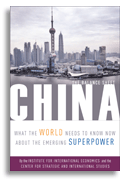
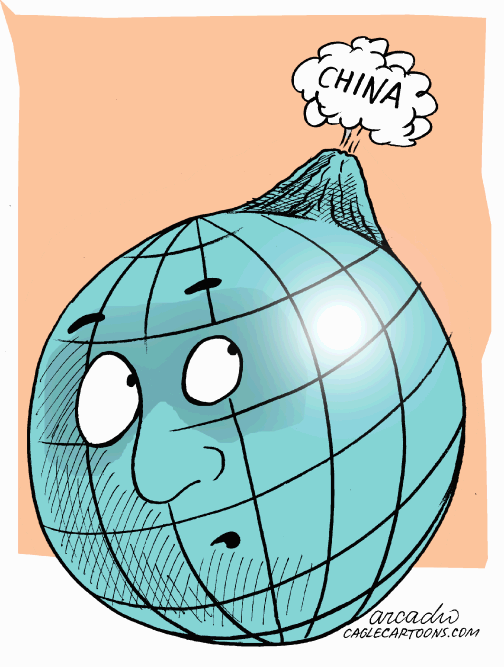
 The original Scopes “Monkey Trial” was a test of a 1925 bill passed in Arkansas that forbade any doctrine from being taught that opposed divine creation as expressed in the Christian Bible. Scopes, a teacher, was accused of teaching evolution. At that time, and even today, many people like the just-departed
The original Scopes “Monkey Trial” was a test of a 1925 bill passed in Arkansas that forbade any doctrine from being taught that opposed divine creation as expressed in the Christian Bible. Scopes, a teacher, was accused of teaching evolution. At that time, and even today, many people like the just-departed 
